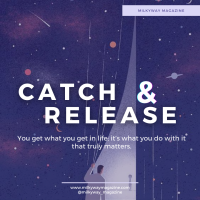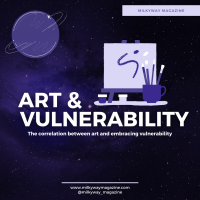
Writers: Marwan Mohamed and Rawan Elshiwy
Constants are a bad thing, right? Well, no, not necessarily! As there are plenty of fixed, stoic rituals in our daily lives that we cannot afford to skip, a constant may be a movie or TV series patiently waiting for you to come back to after a long, exhausting day, or it may be a warm, vibrant meet up with your friends, to vent out and talk about your day. So, our writers, Rawan El-ShiWy and Marwan Mohamed had a thorough debate regarding the constants in our lives.
RAWAN:
There is always some activity or hobby in our day that we take absolute pleasure and certainty in doing. And so, by the time it has become a stable so-called ‘ritual’ that we’ve become accustomed to. For many, there is a sense of satisfaction that comes from consistency and having a specific time and place where a particular thing is done. It isn’t a bad thing, my homies, as some people take it as a must in setting appointments and making schemes and schedules. And in turn, these “planned for” events prove to be time-efficient and also boost self-confidence. So really, having a weekly timed appointment with your psychiatrist, or a from time-to-time errand to run with your friends and go spirit-shopping for clothes, or perhaps a much-needed moisturizing skin-care routine to cleanse and rid your skin of toxins after a tiring day of physical practice. All these situations enhance our view of ourselves, as well as work on releasing accumulated stress. What could possibly go wrong with constants? They’re living their lives to the fullest, meeting their physical and mental needs, and getting their life in check. As I always like to say “A little punctuality doesn’t hurt.” and I would like to add to that, that not only does it do no harm, but it sets the track to your future you’re so anticipated to meet, by keeping your time precious and keeping your soul sane. As Marwan claimed, people get bored easily of sticking to a particular place and time; however, they do NOT get bored with their main plan or in other words, they don’t forget what they came there for and why. So constants depending on doing the same thing over and over again, with a little change in place and time and that still counts as a “routine” or “ritual” as I previously stated above. On a slightly different context, some people have a fear of trying out new things and experiences, scientifically known as “neophobia”. It’s just in their nature, to be afraid of the unknown, and that’s totally acceptable. Sometimes, it’s more comforting staying on grounds you know best to ensure your survival skills are not at risk.
MARWAN:
Constants aren’t really that constant, time passes, people change, and failures aren’t permanent. You see, having a constant thing in your life isn’t always a bad thing. Having some kind of “ritual” as Rawan called it isn’t bad, having a constant person in your life knowing that they are going to always be there for you, and knowing that this person is a constant isn’t bad. But constants start turning bad when they start limiting the amount of spontaneous and new things you can have during your day, like you have this cafe you love meeting your friends at, you’ve been meeting them there for years but it’s going to start getting boring after a while, you need to change it and mix it up, to meet at a new place or else it will feel like a routine. In an indirect way, constants are basically small routines; they kill the action in your life. Instead of going out and trying new stuff, you’re doing the same thing over and over again and sooner or later it’s going to get boring. We always meet new people, new circumstances and new everything. Nothing is really constant in your life except you. So having a constant thing you do on a regular basis kills the joy of trying out new things, it’s like if you just tried one type of cheese, and you loved it, but you decided that you won’t eat any cheese other than that specific type, and as time passed you forgot that there are hundreds of other types of cheese. The point is that having a constant thing blinds and diverts you from the other stuff you can enjoy even more than the things you are already doing. As Rawan said, some people get afraid of trying new things and new experiences, and this is very toxic as you’re missing out on lots of new stuff you may enjoy, so you should never allow your fear to control your choices and decisions, because staying on the grounds you know isn’t always in your best.
Some people prefer sticking to a plan or knowing “where their head lies from their feet”, while others “aim the shot and hope for the best.” But it cannot be dismissed or ignored that both the parties take a liking to being constant sometime or the other.




